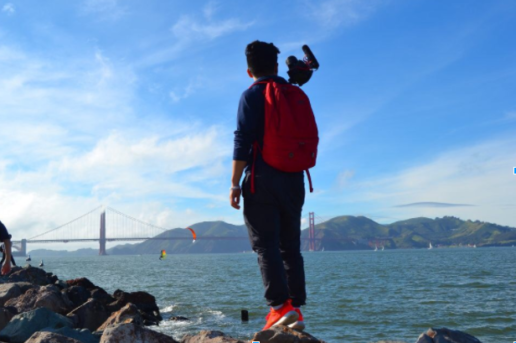Guest Blog by ELP Student Leann Abad – Literature, Science, and the Arts – Class of 2020
Dear Startup Internship Hunter,
The search for an internship at a startup is rough. The outlook for most companies is dim. 7 out of 10 startups are bound to fail. This means the company you spend a summer with may not be around for you to work full-time out of college at. When friends ask you where you’re working, they won’t know the significance of the work you’re doing, compared to if you said you’re interning at Google/Facebook/Apple/Microsoft/any big, well-known company.
But know this — The work you’re doing is more significant than if you were working at a big company. You, as a startup intern, can work directly with the CEO of the company. Your mentor is an entrepreneur, and if becoming an entrepreneur is your goal, you’re putting yourself in a position to learn from someone living the life.
So how does one become an intern for a startup?
Disclaimer: The following advice is what helped me secure an internship for a startup in San Francisco. Also, I am a business development intern, so my advice may not apply to tech roles, but I will keep it as general as possible.
Step One — Build Your Personal Brand
www.youtube.com/watch?v=Alqt7pIbp_o
Tai Tran, Forbes 30 U 30 ’17 — TedxBerkeley
What is a personal brand? It is a culmination of many things!
A personal brand begins with the quality of work you do and how others view you. Even if you put effort into every single social media outlet, if you gather a reputation around subpar/underperforming work, your personal brand means nothing.
Start building your personal brand by being a professional. This means meeting deadlines, reaching/exceeding expectations, and being able to distinguish the difference between your work and personal life.
Step Two — Active/Passive Recruiting
Most interns are not in positions where companies reach out to them personally to recruit them. That is passive recruiting. Internship seekers typically go to career fairs or utilize various outlets (personal connections, online platforms, etc) to find internship opportunities. This is active recruiting.
My suggestion is to do both.
But… how?
Active recruiting is simple. You can attend job fairs, cold email companies, tap into your existing network, etc.
Not many know how, or even what passive recruiting is!
Building your personal brand and online presence is a way of passive recruiting.
Think about it — you’re known by your peers and professors for putting out quality marketing material, so when someone receives notice of a position they immediately think of you.
When your LinkedIn profile is at the “All-Star” level, you play into the algorithm and receive more views on your page.
These are just a few examples, but when you are able to find the perfect balance of active and passive recruiting, it can work wonders for you.
Let’s run through a scenario:
A student at the University of Michigan, let’s call her Amy, wants to intern at a startup. She stumbles upon this article and decides to take the advice.
Amy wants to do business development, as she has long term goals of becoming an operator.
She maximizes her chances for success with the basic requirements (resume, cover letter, LinkedIn profile, etc). But she decides to step it up a notch.
She works on her personal brand. She fills out all the sections she can on LinkedIn, which brings her profile up to “All-Star” status. She ensures the work she puts out during team projects exceeds the requirements, and she builds relationships with professionals in the industry she wants to work in.
She goes to a career fair, where she wows the recruiters with her insanely good communication skills. Later that week, the recruiters do some digging on her.
They look at her LinkedIn profile, and they see her various projects and experiences.
Since Amy put out quality work, a few of her colleagues and supervisors gave her recommendations! They all talk about her tendency to exceed expectations and always turn in things on time.
The recruiters like what they see, so they schedule her for an interview!
Amy then takes it from there. She eventually lands a role with a startup in Silicon Valley, the tech mecca of the world.
Building her personal brand through her professional work and her online presence allowed her to lay back after she went to the career fair, as the recruiters were impressed with her all throughout their processes.
Now, this may be a specific scenario, but you get the gist of what I’m saying.
When you build a great personal brand and actively seek opportunities, you leverage multiple outlets for your name to be seen as a potential candidate.
Step Three — Seek University Programs With Internship Placements
This step is more of a tip. It’s not required, but it definitely helps your chances.
I joined the Entrepreneurs Leadership Program (ELP), which is a program held by the Center for Entrepreneurship (CFE) at the University of Michigan.
ELP is, in my opinion, one of, if not the best program(s) for aspiring entrepreneurs the University offers. Even if you don’t want to run your own show, it’s great for students who want to find a career in the startup world.
Part of the program is placing you at a startup for an internship. They accept all majors and concentrations, and their network is HUGE (seriously).
Being part of ELP is one of the major reasons why I landed the internship I did. There’s no way I could have interviewed with 10+ different startups based out of Detroit, Ann Arbor, Washington D.C., and San Francisco with my own efforts.
Sure, I did my part to perform well on interviews and such, but I could not have gotten my name out to those companies without the help of the staff at the CFE.
Being part of such a program not only places you at a summer internship at a startup, it gives you a group of people focused on solving the world’s biggest problems through innovation.
Recap
Interning at a startup may not sound as cool to some people compared to working for a large company, but the impact you make on the company is direct. Your supervisor is usually one of the higher ups in the company, and sometimes you report directly to the CEO. To maximize your chances at landing an internship, follow these steps: 1. Build your personal brand, 2. Utilize both active AND passive recruiting, 3. Apply for a program that sets you up for success.
When you intern at a startup, you get thrown into the trenches. You do a little bit of everything. You help out wherever is needed. One day you could help close a huge deal and the next you could be running point on a dev project.
I’m here for you! If you have any questions, and/or you want to chat more about my experience, feel free to email me directly at abadlean@umich.edu.
Leann Abad is a student at the University of Michigan — Ann Arbor. As of Summer 2017, he’s a business development intern for a San Francisco startup. To connect with him, contact him at his LinkedIn, his Instagram, his Twitter, and follow his journey on his YouTube channel here.



